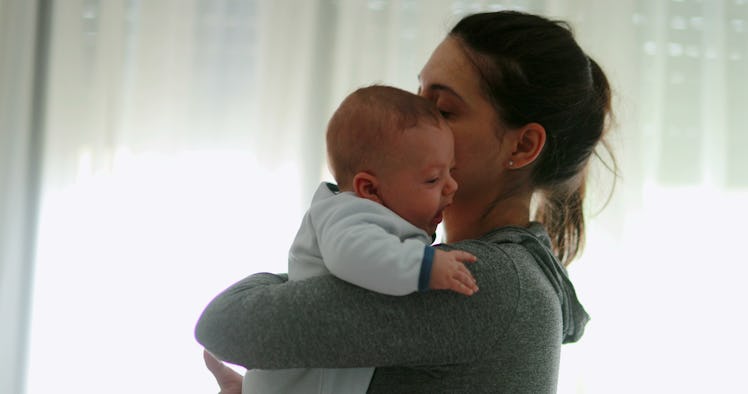75% Of Moms Would Go Broke After 8 Weeks Of Unpaid Maternity Leave: Survey
In plain terms, unpaid leave financially destroys families.

The United States is the only high-income country worldwide that does not offer a federal paid maternity leave policy. A new survey shows just how damaging that lack of policy affects families and the country as a whole.
Breeze, a disability and critical illness insurance company, did a small poll and surveyed 1,001 women between the ages of 18 and 44 to learn more about the impact of unpaid maternity leave in the United States. The report shows that the financial implications of taking unpaid maternity leave can be devastating.
75% of moms said that their cash savings would be totally depleted after eight weeks of unpaid leave. Over half said they would consider taking out a personal loan to cover the costs of the leave and 49% said they would dip into their retirement savings. So it’s not surprising that most people who give birth are back at work within two weeks.
The federal government does offer twelve weeks of unpaid leave to qualifying employees; however, it’s not something most workers in the United States qualify for, nor is it something many parents can take since it gives no guaranteed income.
Statistics compiled by Zippia show just how true that is — one out of three new moms takes little to no time off after birth or adoption. Lower-income women are 58% more likely not to take any maternity leave at all compared to women who make more than $75,000 a year. In addition, one in four women in the United States returns to work only two weeks after giving birth, according to the advocacy group PL+US.
President Joe Biden did propose a federal 12-week paid family and medical leave plan as part of the American Families Plan, which is part of the larger Build Back Better framework. But infamously, much of the Build Back Better plan fell apart, and what was once a 12-week paid leave program was cut back to four weeks of paid leave in protracted negotiations. Even that hasn’t become law.
The reality is that in the United States, more than half of Americans — 150 million adults — are living paycheck to paycheck. To forgo pay to heal and bond with their newborn baby after childbirth — a critical period of time off offered by every other wealthy country in the world — is not possible for so many working Americans, dads and moms alike.
Those who do have access to paid leave programs often work office jobs that pay well and provide benefits, making paid leave a provenance of the wealthy, despite all families needing it equally.
In plain terms, not having paid leave hurts families and workers, and it hurts vulnerable families the most: Nearly 60% of low-income fathers reported “nearly zero weeks of paid time away from work after the birth or adoption of a child,” one expert told Fatherly. Only 45% of Black workers and 25% of Latinx workers have access to paid parental leave, and 72% of Black adults are either ineligible for or can’t afford to take paid leave. Not having access to this key benefit broadens the racial and gender wealth gap and leaves many parents out in the cold.
This article was originally published on